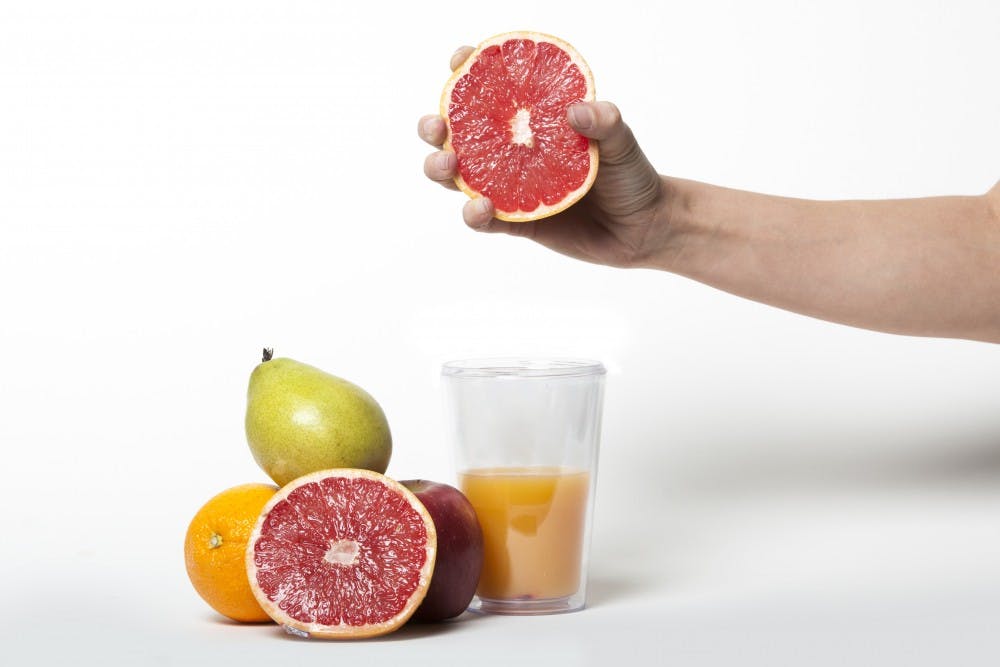Health nuts and celebrities alike have been buzzing about the cleanse trend called juicing, a diet which consists of taking a mixture of fresh fruits and vegetables and extracting the juices as a liquid meal.
While juicing can give a boost when added to a balanced diet, consuming juice alone for even a few days can deprive the body of nourishment.
“If a person only relied on juicers for their health, they will be in trouble,” said Carol Friesen, an associate professor of family and consumer sciences. “For good health, you need a host of nutrients, including essential fatty acids, proteins, fiber, water and fat soluble vitamins and minerals.”
Friesen said juicing tends to leave out pulp and fiber of fruits and vegetables, both of which have significant benefits.
“A suggestion for juicers is to retain the pulp and reintroduce it back into the meals, such as preparing muffins, adding it to thicken gravies or as part of a salad dressing,” said Nicolle Fernandes, an assistant professor of nutrition.
Those who fast from regular food and only drink juice may end up lacking fiber and having insufficient protein and fat, she added.
With the average juicer only consuming 1,200 calories a day, Fernandes said the body begins to conserve energy for vital functions only, such as the pumping of the heart and brain activity.
Ultimately, the efficiency of skeletal and muscle function will be reduced to conserve energy, leading to less productive exercise.
Friesen said after a few days of consuming juice only, one’s immune system will begin to be compromised, hair will weaken and other health issues are possible.
“Your body muscles, including your heart muscle, will break down in order to make the essential proteins your body needs to stay alive,” she said.
While both professors agree juicing alone can’t provide the nutrients needed in place of eating the solid foods, these fruit and vegetable blends can be a healthy addition to a diet.
A person could get multiple servings of produce in one drink. For students who fill their fridge with produce but usually aren’t able to eat it all before it goes bad, juicing could be a helpful resource.
Fernandes said many students are nutritionally deprived, and juicing could give a much needed boost, as students are typically low on protein, calcium, iron, zinc and vitamin C.
According to Harvard School of Public Health, the latest dietary guidelines say people should eat 2.5 to 6.5 cups of fruits and veggies a day depending on their calories.
For example, someone who normally consumes 2,000 calories a day should have 2 cups of fruit and 2.5 cups of vegetables.
Some juices use a blend of certain fruits and vegetables to benefit a specific body function. Some juicing recipes claim to help lower cholesterol, improve metabolism, strengthen the immune system, improve focus and help several other aspects of health.
“Juicing is a fun alternative to the regular fruit and veggies,” Fernandes said.





